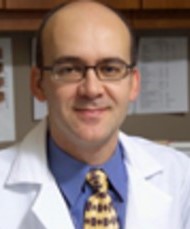
Lung and Mediastinal Cytology
Anjali Saqi, MD, MBA | |
 | Andre I. Moreira, MD, PhD Professor of Pathology New York University Langone Health New York, New York |
Small biopsy and cytology specimens are often the only available specimen for diagnosis and determination of prognostic and predictive markers in lung cancer. Despite several diagnostic categories available for resected specimen, cytological diagnosis is restricted to adenocarcinoma, squamous cell carcinoma and neuroendocrine tumors. Diagnostic criteria and use of ancillary tests for tumor classification will be discussed. Tumors of the mediastinum are rare and the site can be involved in many different tumors. Most pathologists are not familiar with mediastinal disease, especially cytological features of these entities. In this webinar, we will discuss a cytologic diagnostic approach for mediastinal diseases.
Target Audience
This educational activity is designed for pathologists, cytopathologists, cytotechnologists, students and other members of the cytopathology community.
Learning Objectives
- Apply the WHO classification of lung tumor in cytology specimens
- Understand the application of cytology for molecular diagnosis and its indication in lung cancer
- Diagnose types of non small cell lung cancer in cytology material
- Apply a diagnostic scheme to approach mediastinal tumors
Anjali Saqi, MD, MBA
New York, New York
New York, New York
The presenters has no conflicts of interest or financial relationships to disclose.
Continuing Medical Education (CME) Statement
The American Society of Cytopathology is accredited by the Accreditation Council for Continuing Medical Education to provide continuing medical education for physicians. The American Society of Cytopathology designates this enduring educational activity for a maximum of 2.0 AMA PRA Category 1 Credits™. Physicians should only claim credit commensurate with the extent of their participation in the activity.
American Board of Pathology Continuing Certification (CC)
This product can help fulfill the CME requirements and Self-Assessment Modules (SAMs) mandated by the American Board of Pathology Continuing Certification (CC) process. Earn up to 2.0 SAM Credit Hours.
Continuing Medical Laboratory Education (CMLE)
The ASC designates this activity for a maximum of 2.0 Continuing Medical Laboratory Education (CMLE) credit hours for non-physicians. The CMLE credit hours meet the continuing education requirements for the ASCP Board of Registry Certification Maintenance Program. Participants should claim only the credit commensurate with the extent of their participation in the activity.
Cytotechnologists with Licenses in Florida and California
This program is approved for 2 continuing education credits in the State of Florida and 1 in the State of California. The credit on each link is good for three years from the live presentation date.
Available Credit
- 2.00 AMA PRA Category 1 Credit™
- 1.00 California Credits
- 2.00 CMLE
- 2.00 Florida Credits
- 2.00 MOC II
- 2.00 Participant

 Facebook
Facebook X
X LinkedIn
LinkedIn Forward
Forward